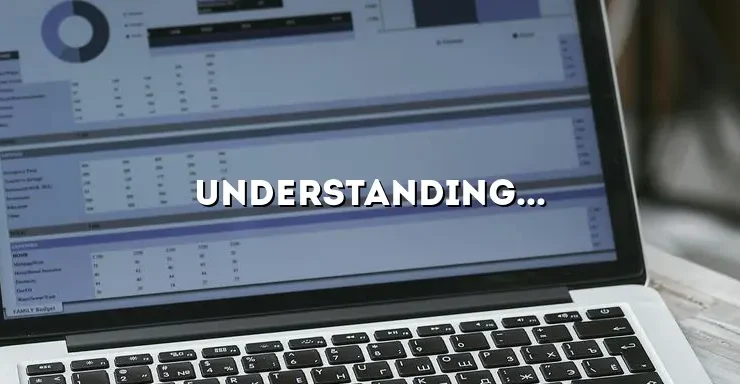
In today’s competitive business landscape, establishing trust and credibility with clients is paramount for professionals and companies. One of the key ways to achieve this is by being licensed and insured. Whether you are a contractor, service provider, or any other type of business, having the proper licenses and insurance coverage not only protects you and your clients but also helps you stand out from the competition by demonstrating your commitment to professionalism and reliability.
Being licensed signifies that you have met specific requirements and standards set by the regulatory authorities in your industry. It acts as evidence that you possess the necessary knowledge, skills, and expertise to perform your job effectively and safely. This not only instills confidence in potential clients but also ensures that you are operating within the legal boundaries of your profession, avoiding any legal or ethical complications.
The Benefits of Being Licensed and Insured
1. Protection for Your Clients:
When you are licensed and insured, it provides a safety net for your clients. They can rest assured that if something goes awry during the course of your work, they will be protected financially. This peace of mind can significantly contribute to establishing a strong and long-lasting relationship with your clients.
2. Protection for Your Business:
Having the right insurance coverage safeguards your business against potential risks and liabilities. Whether it’s property damage, personal injury, or any other unforeseen circumstances, insurance can help cover the costs, protecting your business’s financial stability. Without insurance, your business may be vulnerable to lawsuits and financial losses that can have long-lasting negative impacts.
How to Obtain the Necessary Licenses and Insurance
Before you can commence operating your business, conducting thorough research and understanding the specific licensing requirements for your industry and location is essential. These requirements can vary significantly, and it is crucial to be well-informed. This process may involve passing exams, completing training programs, or obtaining certifications. Once you have met these requirements, you can apply for the necessary licenses from the appropriate regulatory bodies.
Research and Understand Industry-Specific Licensing Requirements
Each industry has its own set of licensing requirements that must be met to legally operate. These requirements can encompass educational qualifications, practical experience, background checks, and more. It is crucial to thoroughly research and understand these requirements to ensure compliance.
Prepare for Exams or Training Programs
In some cases, obtaining a license may require passing exams or completing specific training programs. This step ensures that you have the necessary knowledge and skills to perform your job effectively. Prepare for these exams by studying relevant materials and seeking guidance from industry professionals or training providers.
Obtain Certifications
Certifications can play a vital role in demonstrating your expertise and specialization within your industry. These additional credentials can set you apart from competitors and enhance your professional reputation. Research and identify any relevant certifications that may be beneficial for your business.
Apply for Licenses from Regulatory Bodies
Once you have met all the necessary requirements, it is time to apply for the required licenses from the appropriate regulatory bodies. Ensure that you submit all the required documentation accurately and on time. Be prepared for any additional steps or follow-ups that may be required as part of the application process.
Understanding the Different Types of Insurance Coverage
Insurance coverage is a critical aspect of protecting your business and clients from various risks and uncertainties. It is advisable to consult with an insurance professional who specializes in your industry to assess your business’s specific needs and recommend appropriate coverage options. Here are some common types of insurance you may consider:
General Liability Insurance
General liability insurance provides coverage for third-party claims related to property damage, bodily injury, personal injury, and advertising injury. It protects your business from financial losses resulting from lawsuits, medical expenses, or property repairs.
Professional Liability Insurance
Professional liability insurance, also known as errors and omissions (E&O) insurance, is particularly relevant for service-based businesses. It offers protection against claims of negligence, errors, malpractice, or incomplete work that may result in financial harm to clients. This coverage can help cover legal fees, settlements, and damages resulting from such claims.
Workers’ Compensation Insurance
Workers’ compensation insurance is crucial if you have employees. It provides coverage for medical expenses, rehabilitation costs, and lost wages in case an employee suffers a work-related injury or illness. This insurance not only protects your employees but also shields your business from potential lawsuits related to workplace injuries.
Property Insurance
Property insurance covers damage or loss to your business property, including buildings, equipment, inventory, and furniture. This coverage helps you recover financially from events such as fire, theft, vandalism, or natural disasters.
Ensuring Compliance and Renewal
Once you have obtained your licenses and insurance coverage, it is essential to stay updated and compliant with any changes in regulations or policies. This ensures that your business continues to operate legally and maintains its credibility. Consider the following steps:
Continuing Education and Professional Development
Many licensed professions require ongoing education to keep up with industry advancements and changes. Engaging in continuing education courses and professional development opportunities not only enhances your skills but also demonstrates your commitment to staying abreast of the latest trends and practices in your field.
Renewing Licenses and Certifications
Licenses and certifications typically have expiration dates and require renewal. It is crucial to keep track of these dates and initiate the renewal process in a timely manner. Failure to renew licenses can result in legal consequences and the inability to continue operating your business.
Reviewing and Updating Insurance Policies
As your business grows and evolves, it is essential to review and update your insurance policies to ensure they adequately cover your needs. Regularly consult with your insurance provider to assess any changes in your business operations or potential risks that may require additional coverage or adjustments to existing policies.
Building Trust and Credibility
Being licensed and insured not only protects you and your clients but also helps build trust and credibility in the eyes of potential customers. It showcases your commitment to professionalism, ethical practices, and quality service. To maximize the impact of your licensing and insurance:
Display Your Licenses and Insurance Information Prominently
Make sure to prominently display your licenses and insurance information on your website, marketing materials, and any other relevant platforms. This transparency helps potential clients verify your credentials and instills confidence in your business.
Highlight the Benefits of Working with a Licensed and Insured Professional
Educate your target audience about the advantages of choosing a licensed and insured professional. Emphasize the protection, peace of mind, and quality assurance that come with working with someone who has met the necessary licensing requirements and carries appropriate insurance coverage.
The Competitive Edge
In today’s saturated market, standing out from the competition is crucial. Being licensed and insured gives you a competitive edge by differentiating yourself as a reliable and trustworthy professional. It sets you apart from those who may not have taken the necessary steps to ensure their credibility, helping you attract more clients and grow your business.
The Long-Term Success of Your Business
Obtaining the required licenses and insurance coverage is a vital step towards building a successful and reputable business. It not only protects you and your clients but also enhances your credibility and helps you stay ahead in a competitive market. By investing in being licensed and insured, you are investing in the long-term success and growth of your business.






